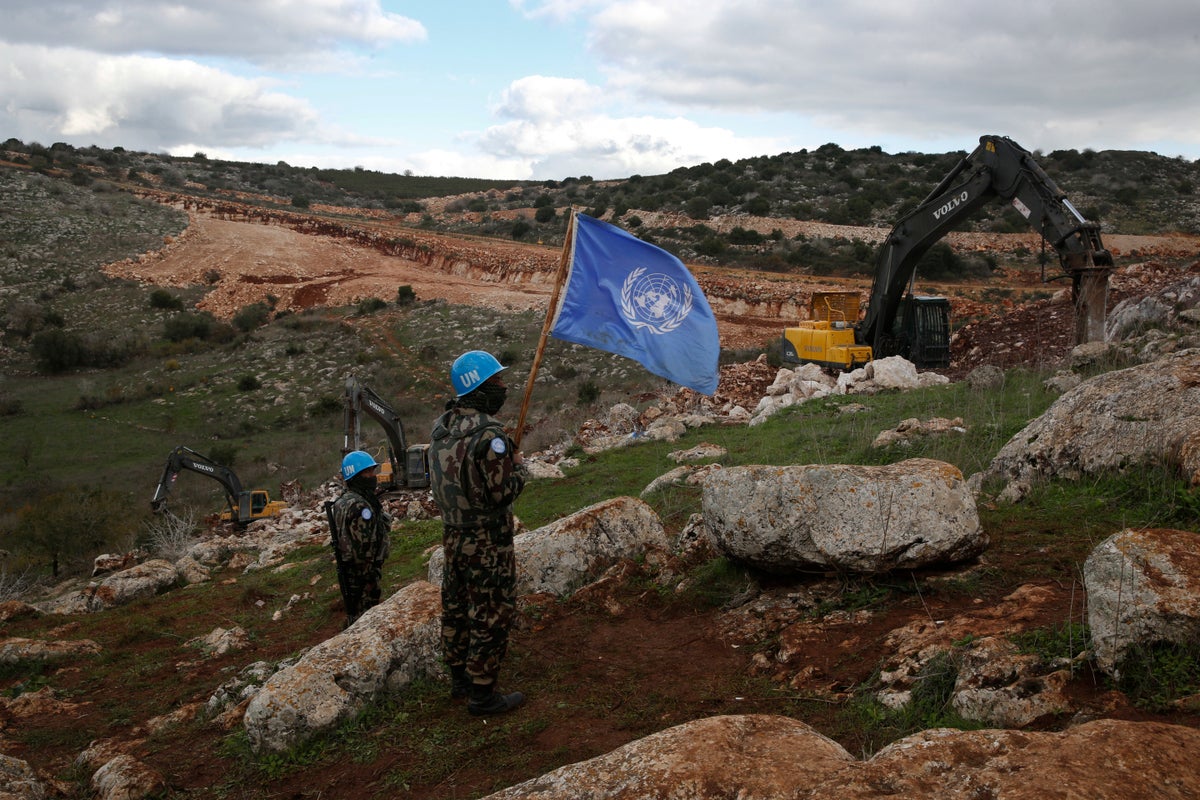
Your support helps us to tell the story
Pressure has been mounting on Israel over attacks on United Nations peacekeepers in southern Lebanon, as Israeli prime minister Benjamin Netanyahu repeated the warning for them to temporarily leave the area.
The UN Security Council expressed "strong concern" as Israel has fired on and wounded UN peacekeepers in Lebanon during intensified fighting.
Some five peacekeepers have been wounded in attacks since Israel began a ground campaign against Hezbollah, with most blamed on Israeli forces.
Mr Netanyahu has urged peacekeepers to move 3 miles north during its ground invasion in Lebanon, and said Israel "regrets any harm done to UNIFIL personnel”.
The United Nations Interim Force in Lebanon, known as UNIFIL, will stay on Lebanon's southern border despite Israel's request.
Here, The Independent looks at why there are UN peacekeepers in Lebanon and why Netanyahu has claimed they’re helping Hezbollah.
What is the United Nations Interim Force in Lebanon (UNIFIL)?
UNIFIL was set up in 1978 to monitor Israel’s withdrawal from the south of the country after its invasion at the time, and ensure that militant groups did not operate on the Lebanese border.
In 2000, UNIFIL established the Blue Line – a 75-mile area along southern Lebanon to ensure the complete withdrawal of Israeli forces. It acts as a border between the two countries since Lebanon and Israel have an ongoing border dispute.
The troops monitor border violations and keep the area, which includes Hezbollah strongholds, secure.
UNIFIL is made up of 10,541 peacekeepers from 50 countries. The UK sends one peacekeeper to UNIFIL compared to around 1,000 from Italy, more than 600 from France and some 300 from Ireland.
The peacekeepers now operate in a 410 square mile area between the Blue Line and the Litani River in southern Lebanon.
Its mandate is renewed annually by the UN Security Council, and most recently extended the mandate until 31 August 2025.
What is happening now?
Tensions between Israel and UNIFIL have escalated in recent days with claims Israeli tanks burst into a UN base on Sunday.
A UN peacekeeper was also wounded in southern Lebanon on Saturday after being hit by gunfire — the fifth member of the multinational force to be injured in recent days.
Israeli prime minister Benjamin Netanyahu has ordered the UNIFIL to relocate, claiming that their bases were serving as cover for Hezbollah fighters – but the UN has insisted that its presence is crucial for international oversight and stability.
UN peacekeeping chief Jean-Pierre Lacroix told reporters that Secretary-General Antonio Guterres said peacekeepers will remain in all their positions even as Israel has urged the peacekeepers to move three miles north during its ground invasion in Lebanon.
He also confirmed that five UNIFIL peacekeepers had been injured in recent days and that the UN has protested to Israel.
Israeli Army spokesman Lieutenant colonel Nadav Shoshani has said that Israel has tried to maintain constant contact with UNIFIL and that any instance of UN forces being harmed will be investigated at “the highest level”.
Mr Netanyahu has accused them of “providing a human shield” to Hezbollah.
On Monday night, the foreign ministers of France, Germany, Italy and the UK issued a joint statement expressing their “deep concern” over the recent Israeli “attacks on UNIFIL bases”.







